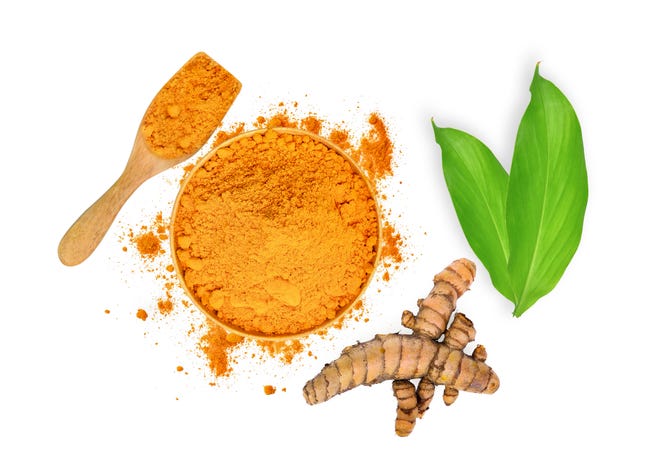Your Cart is Empty

Curcumin has been used for hundreds of years to add flavor, color, and for food preservation. Curcumin is also known for its promising medicinal properties, particularly as an anti-inflammatory substance.
Historically, turmeric has been used in Ayurvedic medicine and other Eastern medicines. In these medicinal practices, it has been used as a homeopathic remedy to treat upper respiratory tract disorders, painful joint conditions, digestive issues, and made into a paste to treat skin disorders.
Fast forward to today, and after years of research, we see curcumin being used to aid in the treatment of many health problems, including arthritis, allergies, liver problems, digestive disorders, respiratory infections, depression, and others.

Curcumin is found in the root commonly known as turmeric. Turmeric is a plant in the ginger family, local to Southeast Asia and harvested mostly in India. Recently, research has supported the claims that turmeric contains compounds that have medicinal properties. These compounds are called curcuminoids, with the most beneficial being curcumin.
Inflammation is a necessary function of the body. It helps fight foreign invaders, and has a role in repairing cellular damage in the body. Although short-term inflammation in response to infection and injury is beneficial, it can be a concern if it becomes chronic.
Experts believe that chronic low-level inflammation may play a role in the development of some health conditions and diseases. These diseases include heart disease, cancer, metabolic syndrome, Alzheimer’s disease, various autoimmune disorders, and various degenerative conditions.
Osteoarthritis and rheumatoid arthritis are degenerative, inflammatory diseases of the joints that are often accompanied by chronic pain and seriously interfere with daily life. Chronic pain itself is also associated with inflammation.

Many athletes are also now intrigued by the beneficial effects of curcumin as it relates to inflammation. Whether you are a competitive athlete, runner, cyclist, or a casual workout enthusiast, curcumin can play a vital role in your recovery routine. Unfortunately joint health deteriorates with time, but if we focus on healthy recovery protocols, we can remain more active even later in life. According to The Center, by 2030, total knee replacement surgeries are projected to grow 673% to 3.5 million procedures per year. Therefore, individuals who are pushing their bodies through various exercises should also be cognizant of the strain they are putting on their joints. It is projected that nearly 50% of American adults will develop knee osteoarthritis in at least one knee in their lifetime!
That is why curmucin is worth consideration. We know human movement is key for both mental and physical well-being, but if our bodies are incapable due to joint pain, it leaves us without any options. Joint health and natural remedies to support joint health, are topics that should be top of mind not only for athletes, but for anyone who wants to live a pain-free, active lifestyle.
Research suggests that curcumin has antioxidant and anti-inflammatory properties that have the ability to reduce inflammation. Numerous studies have shown consistent supplementation of curcumin to improve symptoms associated with osteo- and rheumatoid arthritis. Participants of the studies showed improvement in symptoms of pain and inflammation with curcumin supplementation. A typical therapeutic dose of curcumin for osteoarthritis is around 1000 mg/day but this will vary for every individual depending on their diet, pain level, supplementation regimen along with many other factors. Although evidence suggests that curcumin is a natural anti-inflammatory aid, its bioavailability needs to be enhanced in order to increase its effectiveness. Very high doses are required to produce medicinal results. There are also ingredients that can be added to curcumin supplements to enhance their bioavailability, such as piperine (the major active component of black pepper).

If you’d like to reap the anti-inflammatory benefits of the wonder herb curcumin, you can do so by adding turmeric root to your daily routine. Add grated turmeric root or a pinch of turmeric powder to smoothies, grains (rice, quinoa, bulgar), curries, soups, stir-fries, egg dishes, dressings, and dips.
For more ideas on how to implement turmeric and curcumin into your diet check out these recipes from The Feel Good Lab!
Keep in mind, curcumin must be consumed in very high doses to be effective in reducing inflammation and chronic pain. In addition to adding turmeric to the food you eat, you can also supplement with a curcumin.
Feel free to reach out to our team at hello@thefeelgoodlab.com with any questions or concerns about inflammation and check out our Inflammation Support product.